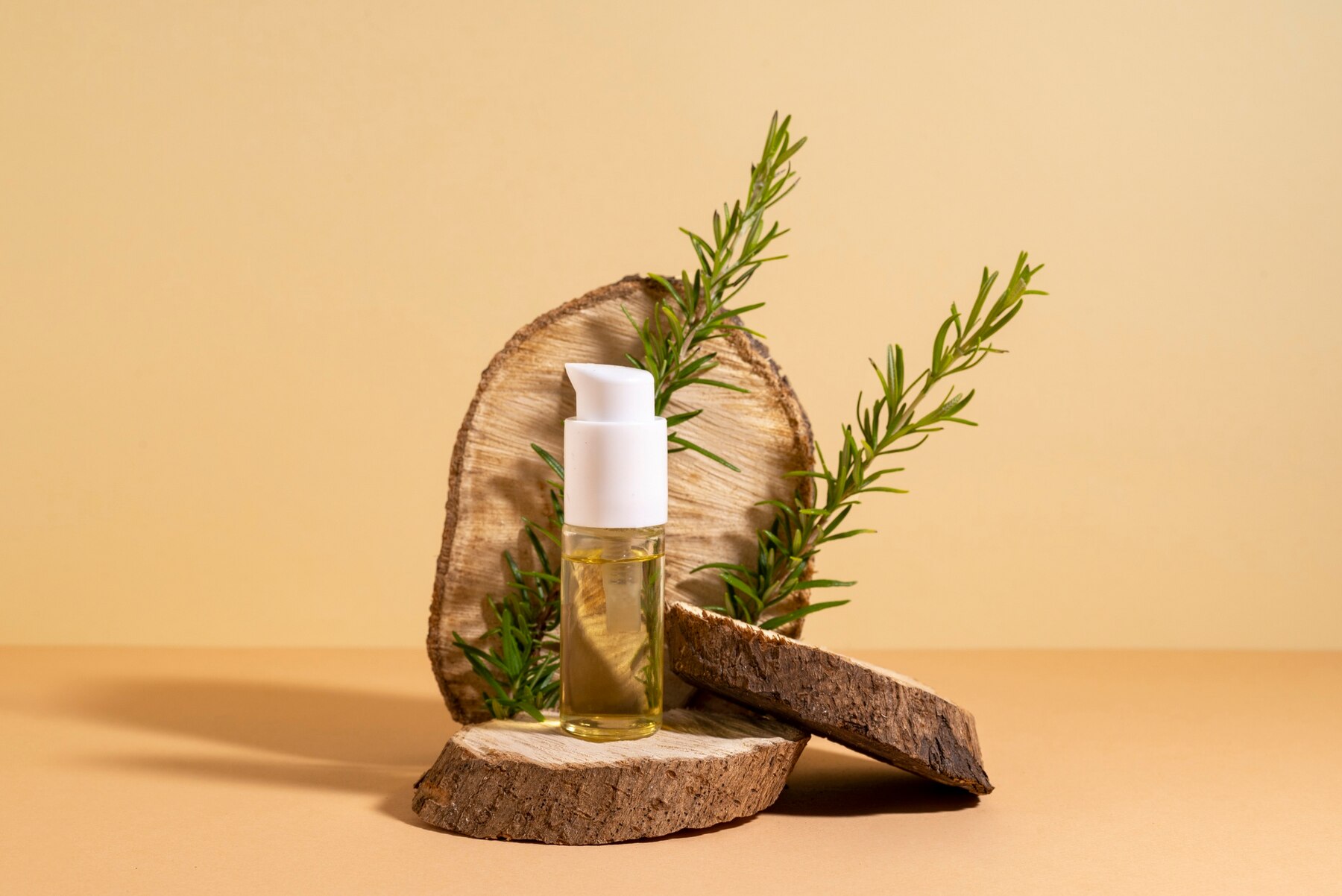
Rosemary oil has been a staple in traditional medicine and culinary practices for centuries. Known for its aromatic and versatile properties, it has become increasingly popular in modern hair care routines. This expert guide explores the uses, benefits, and potential applications of rosemary oil, highlighting its role as a natural addition to various hair and scalp care practices.
1. What is Rosemary Oil?
Rosemary oil is derived from the leaves of the rosemary plant (Rosmarinus officinalis) through steam distillation. This essential oil is well-known for its distinctive aroma and diverse uses. Historically, rosemary was valued by ancient civilizations such as the Egyptians, Greeks, and Romans for its various applications and as a symbol of remembrance and fidelity.
For more information on Rosemary, please refer to: Rosemary (Rosmarinus officinalis)
2. Benefits of Using Rosemary Oil
Rosemary oil contains bioactive compounds like rosmarinic acid, carnosic acid, and camphor, which contribute to its versatility. Its antioxidant and purifying properties make it a valuable addition to health and beauty routines. These attributes are especially appreciated for promoting scalp health, as they may help address oxidative stress and support overall scalp well-being.

3. Rosemary Oil for Healthier Hair
Rosemary oil is often recognized for its potential to support hair health. Carnosic acid, a key component of rosemary oil, is believed to help promote healthy scalp circulation. Improved circulation may supply hair follicles with essential nutrients and oxygen, which can contribute to healthier hair. Some research highlights rosemary oil's potential as a natural alternative for promoting scalp health, helping to maintain thicker and more resilient hair with regular use.
4. How to Use Rosemary Oil for Hair Care
To effectively use rosemary oil for hair care, follow these simple steps:
1. Dilution: Pure rosemary oil is highly concentrated and can cause skin irritation if used undiluted. Mix a few drops of rosemary oil with a carrier oil such as coconut, jojoba, or olive oil.
2. Application: Part your hair and apply the diluted rosemary oil directly to your scalp using a dropper or your fingertips.
3. Massage: Gently massage the oil into your scalp in circular motions, helping with both absorption and healthy scalp circulation.
4. Frequency: Use rosemary oil 1-2 times per week. Consistency is important to see the best results over time.
5. Leave-in Time: Let the oil sit for at least 30 minutes before rinsing with a mild shampoo. Some prefer to leave it overnight, but it's best to be cautious to avoid potential irritation.
Pregnant or nursing individuals should consult their healthcare provider before using rosemary oil, as its effects during pregnancy and lactation are not well-studied. Additionally, avoid leaving rosemary oil in your hair overnight, as prolonged exposure may lead to irritation.

5. Additional Hair and Scalp Benefits
Rosemary oil is often used for its various benefits related to hair and scalp care:
- Dandruff: Its antimicrobial properties may help address fungal concerns associated with dandruff, potentially reducing flakiness and itching.
- Dry Scalp: Regular use of rosemary oil can help moisturize and soothe a dry, itchy scalp, contributing to overall scalp comfort.
- Premature Graying: While some anecdotal evidence suggests that rosemary oil might influence the graying process, further scientific research is needed to explore this possibility.
Many dermatologists and hair care experts suggest rosemary oil as a natural option for supporting scalp health and maintaining the appearance of vibrant hair.
6. Expert Opinions and Research Findings
Several studies have investigated the use of rosemary oil for hair health. One study published in the journal Skinmed suggested that rosemary oil may offer benefits similar to those of minoxidil for androgenetic alopecia (pattern baldness) over a six-month period, with fewer reported side effects. Experts note that while rosemary oil shows potential, further research is needed to fully understand its effects and mechanisms. They recommend consistent application and integrating rosemary oil into a comprehensive hair care routine for optimal results.

Conclusion
Rosemary oil, with its rich historical use and supportive properties, can be a valuable addition to your hair care routine. It is known for its potential to enhance scalp health and address common concerns like dryness and dandruff. By incorporating rosemary oil into your regimen, you can benefit from its natural qualities that may support a healthy scalp and overall hair well-being. Whether you're looking to maintain a healthy scalp or improve the appearance of your hair, rosemary oil offers a natural option worth considering.
Incorporating rosemary oil into hair care offerings provides a natural option for supporting scalp health and enhancing hair appearance. At Pureness, we offer high-quality essential oils and customizable formulations to meet diverse needs and preferences, supporting innovation in product development.

PURENESS | Essential Oil Wholesale | Fragrance Product OEM
For over 20 years, Pureness has deeply cultivated the essential oil industry, offering over 250 types of natural essential oils and 50 types of plant oils. We provide essential oils in large quantities, including big drums and kilogram-sized orders, to meet diverse customer demands. Our professional aromatherapy team is dedicated to formulating comprehensive recipes, a full range of fragrance products, and a complete line of OEM skincare solutions. We tailor formulations based on our customers' product needs, customizing fragrance scents and effects to produce standout products under exclusive brand names. Contact us for consultations and inquiries!
Contact Information|PURENESS
- Location: 5th Floor, No. 42, Zhongming South Road, West District, Taichung City
- Contact number: +886-4-2310-6863
- Email:sales@pureness.asia
- Contact channel:LINE@|Whatsapp|Email

More Articles
